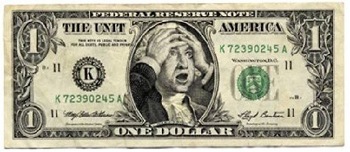 Splash! Could that be the sound of Lord Mandelson hitting one of the Dolce hotel's four pools? Or Robert Zoellick of the World Bank? Paul Volcker of the US Economic Recovery Advisory Board? Or merely the euro taking another dive? Splash! Could that be the sound of Lord Mandelson hitting one of the Dolce hotel's four pools? Or Robert Zoellick of the World Bank? Paul Volcker of the US Economic Recovery Advisory Board? Or merely the euro taking another dive?
That is the thing about the Bilderberg group's top secret meetings: you never know quite what is going on behind the police checkpoints.
Across the world, secretaries to the rich and the powerful have blocked out the next three days in their bosses' calendars for their annual gathering, this time at the Dolce in Sitges, one of Spain's most exclusive resorts.
Normally, every minute of their working lives is accounted for but, each year, a couple of hundred of the world's financial elite and the more business-friendly members of the political class disappear from view; supposedly to save the planet from the dangers of parochialism, the nationalist genie.
It is all terribly confidential -- breathe a word about it and you're out of the club -- but the Bilderberg watcher Daniel Estulin claims to have a copy of the agenda. The big question this time around is whether the euro will survive. "They are afraid that the countries in trouble will leave and the euro will fall apart," said Mr Estulin. "The biggest nightmare is if EU members return to nationally orientated policies."
That would certainly explain why the keynote address is being given by José Luis Rodríguez Zapatero, the Spanish Prime Minister. The Piigs -- Portugal, the Republic of Ireland, Italy, Greece and Spain -- are of concern to the Bilderbergers. After all, the club was set up in 1954 by a Polish exile, Joseph Retinger, to create a European bulwark against the spread of communism. It provided the germ of the European idea; Franco-German reconciliation, the entry of West Germany into Nato, the Maastricht treaty -- all were cooked up in annual fireside chats.
Now, according to Mr Estulin's information, the Bilderbergers are nervous that the erosion of the euro could nudge the world back into recession while public services cuts could trigger unrest and radicalise the political climate.
Plenty to talk about at the Dolce, then. The Bilderberg protesters, sure that they can smell a good oldfashioned capitalist conspiracy, will be holding fringe meetings in the town. The hunt will be on to find a chambermaid ready to ransack hotel litter bins for evidence that evil work is afoot. It has been easier to get nuggets of information out of Bilderberg since hotel staff started to read Dan Brown and talk about the illuminati.
Could it be, though, that the Bilderbergers are simply having fun, away from their spouses, on their annual jamboree? The secret of Bilderberg could be that there is no secret. Certainly, the hotel offers plenty of distractions for stressed CEOs: qi-gong courses, excellent fish, fine wines and bicycle tours.
Henry Kissinger, 87, the former US Secretary of State, and David Rockefeller, 95, the former chairman of the Chase Manhattan Bank, are the elder statesmen of Bilderberg -- but the leaked invitation list reveals that the gathering is made up primarily of elderly white gents.
What? No racial quotas? Better get Obozo in there immediately to straighten things out!
Remember Richard Perle, 68, George Bush's erstwhile Prince of Darkness? He could perhaps form a Prince of Darkness sub-group with Lord Mandelson. Paul Wolfowitz, 66, formerly of the World Bank? Mario Monti, 67, EU commissioner for the single market between 1995 and 1999?
Only the possible attendance of George Osborne, 39, the British Chancellor, will reassure hotel staff that they are not dealing with a Saga Holidays tour. Other members of this clandestine coven include Queen Sofia of Spain and Queen Beatrix of Holland. No doubt their views will be sought on the Swedish royal wedding later this month. Is it right, for example, that a young princess should marry her personal trainer? Fortunately, the Dolce has a team of personal trainers on hand ready to chip into the debate.
Last year Bilderberg held its meeting at the Nafsika Astir Palace hotel in Greece and apparently failed to spot how close their host country was to melting down. Watch out, Spain!
The weather forecast is for three days of sunshine -- time for the Bilderbergers to slink out of the shadows. |


 [Dawn] Even without factoring in the impact of climate change, the World Bank and the
[Dawn] Even without factoring in the impact of climate change, the World Bank and the  Splash! Could that be the sound of Lord Mandelson hitting one of the Dolce hotel's four pools? Or
Splash! Could that be the sound of Lord Mandelson hitting one of the Dolce hotel's four pools? Or  The dollar's position as the world's leading reserve currency faces increased pressure as the financial crisis allows emerging economies greater influence on the world stage, analysts said.
The dollar's position as the world's leading reserve currency faces increased pressure as the financial crisis allows emerging economies greater influence on the world stage, analysts said. The falling US dollar is giving ammunition to the critics of the Obama administration and fuelling broader concerns about the potential erosion of Americas reserve currency status.
The falling US dollar is giving ammunition to the critics of the Obama administration and fuelling broader concerns about the potential erosion of Americas reserve currency status.